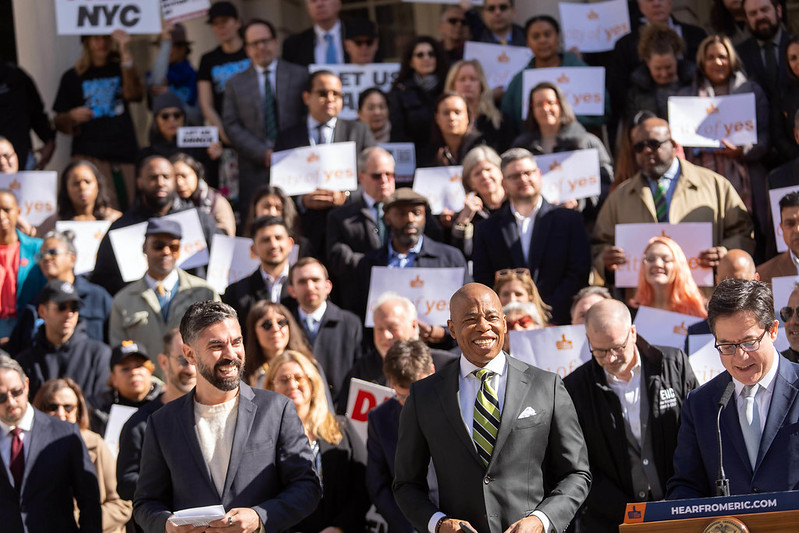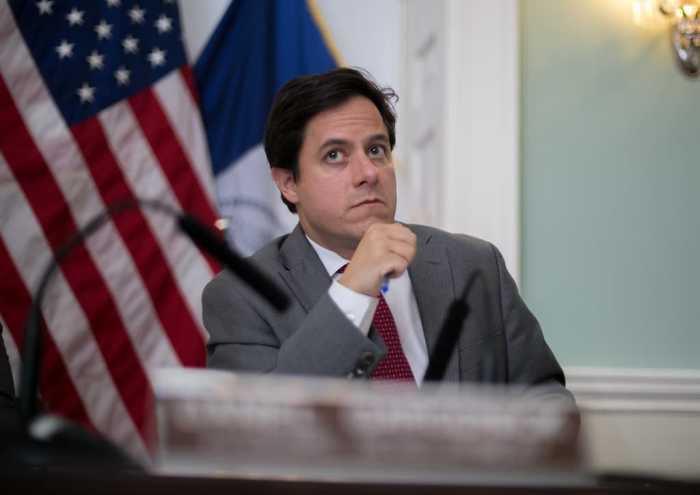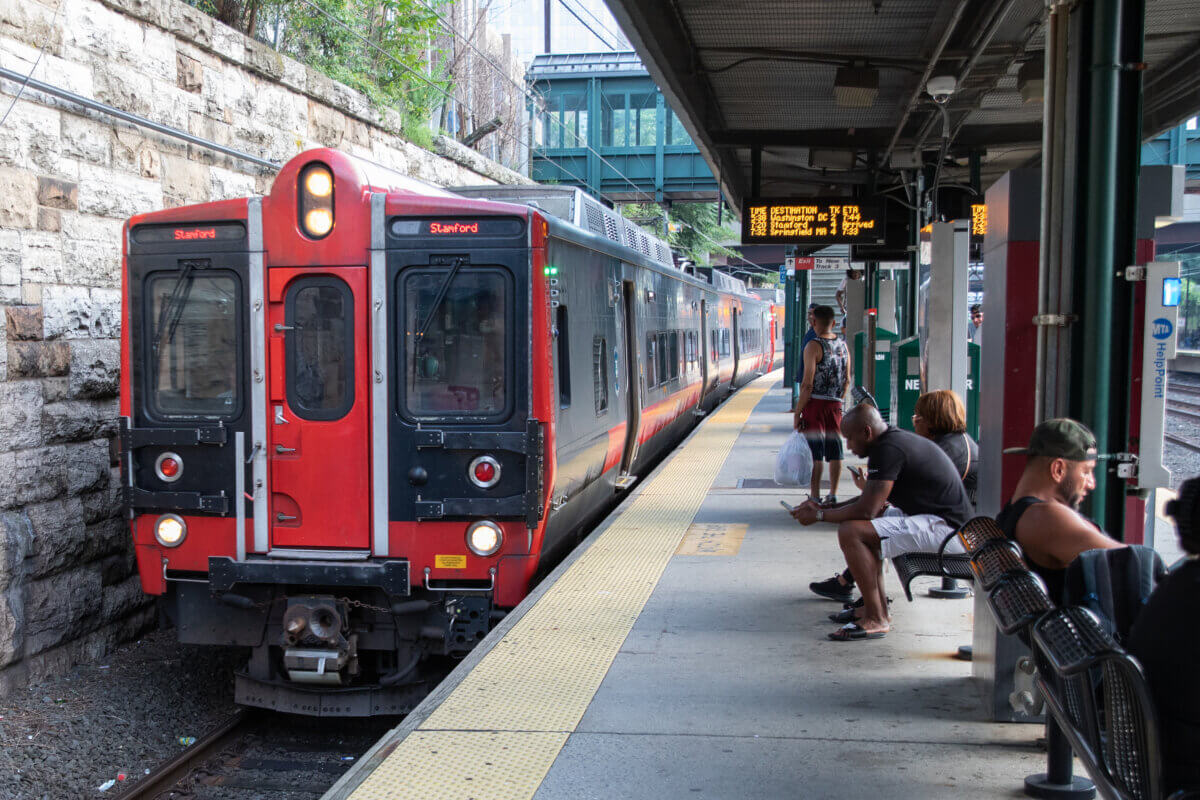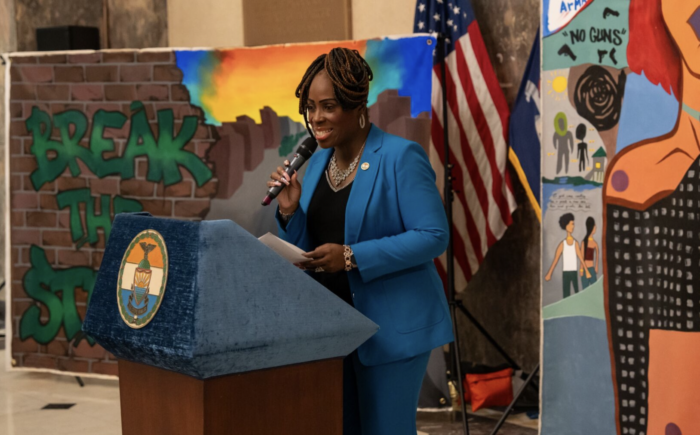City Council members on Monday voiced several concerns over Mayor Eric Adams’ sweeping “City of Yes” zoning amendment designed to make it easier for Big Apple businesses to operate and expand.
Legislators grilled Department of City Planning (DCP) officials over certain components of the 18-point plan, known as the “City of Yes for Economic Opportunity,” during a Monday hearing. The proceeding followed the City Planning Commission’s (CPC) approving the measure last month.
Dan Garodnick, who serves as both DCP commissioner and CPC chair, said the proposal is aimed at modernizing zoning rules that were written over 60 years ago, which he described as “too complex, restricted and outdated.” It seeks to fill the nearly 17,000 storefronts across the five boroughs, while allowing businesses to open and expand into spaces where they are not currently permitted.
“It will help revitalize commercial corridors, fill vacant storefronts and boost our economic recovery across the board,” the mayor said at a rally preceding the hearing.
Bronx City Council Member Kevin Riley, chair of the council’s Zoning and Franchises Subcommittee, said he is concerned the plan does not address the concentration of “last mile” large package distribution warehouses — utilized by e-commerce companies like Amazon — in some corners of the city. The problem is particularly acute in areas like Red Hook, Brooklyn, and Hunts Point in the Bronx, Riley said.
“The city needs to rethink comprehensively how packages are being delivered to our homes and the concentration of large packaging warehouses in certain neighborhoods,” Riley said.
The council member also raised the alarm about the city Department of Buildings’ (DOB) ability to enforce the rule changes with its current resources and staffing levels.
“The Department of Buildings does not have the needed staff or resources to address violations of the zoning resolution,” he added. “The administration needs to pledge to increase DOB’s resources so that our quality of life concerns that our communities are rightfully raising are fully addressed.”
The plan would allow “clean manufacturing” — like 3-D printers and jewelry makers — to operate in commercial districts, make it so more businesses can operate on upper floors of buildings and authorize new corner businesses like bodegas to open in residential zones. Additionally, the changes would clear the way for life sciences labs to open near hospitals and allow for activities like dancing that are currently barred in some commercial zones.
Council Member Alexa Aviles (D-Brooklyn) who represents Red Hook, said there was a “full omission” of proposals to address the concentration of last mile facilities in the plan.
“We know the climate impacts, the polluting impacts, the thousands of additional diesel trucks in our community and yet no portion of this has addressed that in earnest,” Aviles said, referring to the pollution from trucks picking up packages from the facilities.
Garodnick said regulating the facilities is a “challenging topic,” but noted that zoning changes might not be the best way to address what is partially a transportation issue.
“We can certainly commit to turning over all land use possibilities [and] working with our partners at the city and state,” he said. “You have my commitment to continue to work with you on that.”
City Hall spokesperson William Fowler later insisted, in a statement, that adding a requirement for companies to seek a “special permit” for citing last-mile warehouses, as Aviles seeks to do, would be out of the legal scope of the plan.
“While we urge the City Council to adopt ‘City of Yes for Economic Opportunity’ as we continue to craft policy for last-mile warehouses and logistics in New York City more broadly, a special permit is not legally allowed to be added to the proposal,” Fowler said.
In a separate line of questioning, Council Member Lynn Schulmann (D-Queens), asked how DOB will manage enforcing the zoning changes with limited staff and resources. Garodnick insisted that the zoning changes will actually lighten the workload for DOB enforcers by “clarifying” the rules.
“This proposal is designed to make it easier for them to read, respond to and enforce the rules that we’re putting on the books,” Garodnick said.
Schulman also raised concerns about the majority of the city’s Community Boards — 30 out of 51 — rejecting the proposal.
Council Member Kamillah Hanks (D-Staten Island) said the plan is not popular with the city’s suburban and bedroom communities, which are prevalent on Staten Island.
“A lot of these changes will adversely, or at least they feel like they will, adversely impact these bedroom communities, heavily residential communities like Staten Island,” Hanks said. “Some of these rules may mean something completely different than it would in a place like Manhattan as opposed to a place along Forest Avenue.”




































